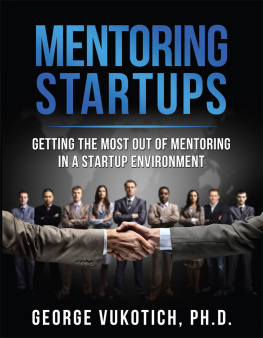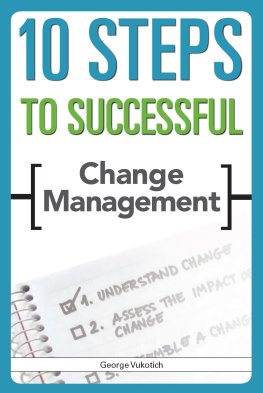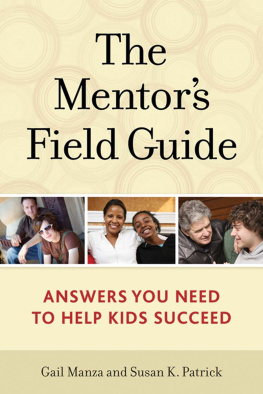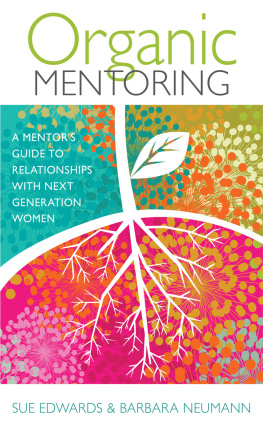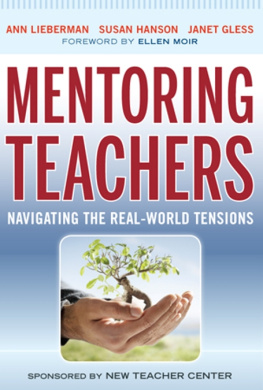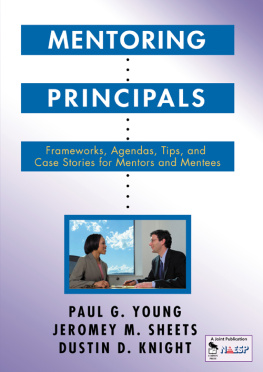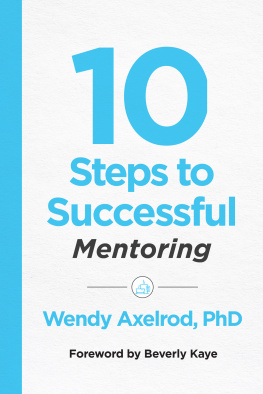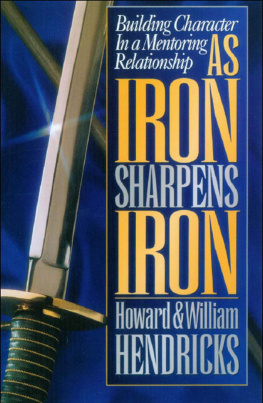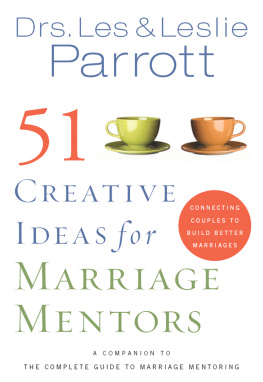Mentoring Startups
by
George Vukotich, Ph.D.
Mentoring Startups
Copyright 2016 by George Vukotich, Ph.D. All rights reserved.
==============================================
No part of this publication may be reproduced, stored in a retrieval system or transmitted in any way by, any means, electronic, mechanical, photocopy, recording or otherwise without the prior permission of the author except as provided by USA copyright law.
==============================================
Published in the United States of America.
ISBN:9781537792194
Dedicated to the entrepreneurs and the mentors that help them make the world a better place.
The need for a mentor is obvious, yet seeking one out can be quite difficult and daunting. How do you find the right person?
~ Richard Branson
CONTENTS
FOREWORD
BY WENDY LALLI
I first met George Vukotich when he came to a meeting of the Oak Park Creative Network (OPCN) back in 2002. At that time there were no incubators to help startups, just local groups of individuals open to helping each other. The OPCN was a group I started at the Oak Park Public Library to help; local entrepreneurs grow their business, individuals considering starting a business, career changers, and recent college grads that were looking for non-traditional career opportunities. The idea was to build a community of like-minded individuals that would be more successful by working together than going it alone.
For those of you unfamiliar with Oak Park, IL, its a community of around 50,000 people thats just a 20-minute ride from downtown Chicago. It has all of the urban amenities coffee houses, restaurants, a movie theatre and shops plus the natural beauties of a tree-lined residential suburb. Best of all, its a town that takes enormous pride in its history of integration, tolerance, commitment to learning and the arts. Ernest Hemingway, Frank Lloyd Wright, Ray Kroc, Edgar Rice Burroughs and Bob Newhart are just a few of the writers, artists and performers who lived in Oak Park at some point in their lives.
Given this environment of individualistic creativity, the OPCN, unlike most networking groups did not measure the success of a members career only in terms of conventional employment. Rather, the group encouraged each other to find occupations that gave them a sense of satisfaction as well as income. As a marketer and career coach who has undergone numerous career transitions in my own life, I made a point of suggesting that OPCN members regard themselves as entrepreneurs who could control their own destiny. After all, the day of the permanent job ended several decades ago and, like it or not, at some point in time all of us will probably be a one-person start-up.
For three years from 2002 to 2005 the OPCN drew between 30 and 70 people for each meeting. Eventually, a core group of around 20 loyalists formed. They were from a wide range of professions -photographers, writers, marketers, web designers, IT professionals, teachers, and others who met to discuss how to market their skills, develop new businesses and utilize new tools such as the internet and social media to build strong, viable networks of like-minded professionals. All of them had one thing in common -they appreciated and recognized the value of having a group of other professionals who could consistently offer informed advice and sincere moral support.
George became a vital member of this group and a good friend from that experience. At that time, George had already earned an MBA in Finance and a Ph.D. in Organizational Management. He had extensive big company experience with the likes of; IBM, Accenture, and BP. He was on his second startup running the Organizational Change function and working as the Vice President of Human Resources with JPN Associates. When he told me he was writing this book I immediately flashed back to his role in the OPCN and how he helped other individuals. For although we were never set up to function as an entrepreneurial incubator, in many ways we resembled one.
George would go on to become Department Chair and Associate Professor in the Graduate Program in Training and Development at Roosevelt University, where he designed, developed and implemented a series of changes to enhance and update the schools curriculum. He also wrote several well-received books on developing business relationships and change management, served in the Air Force Reserve, explored ways to make it easier for veterans to get an education and established a start-up of his own, focused on developing and delivering online education.
As time went on the core group of the OPCN went on to concentrate on their businesses and some moved on to other opportunities. I moved away from Oak Park, but stayed in touch with George. I reconnected with him when he asked me to participate in a special workshop at Concordia University Chicago in the fall of 2011. As Dean of the College of Business, he was seeking new ways to promote the school and develop ideas that would energize and modernize its curriculum. I found myself among a distinguished group of educators, writers, business people and marketers inspired by George to brainstorm solutions to some of the challenges facing colleges today. It was a fascinating and exciting time that gave all of the participants the opportunity to gain new insights about what an educational institution should offer its students and how it could best deliver on those promises. You could see Georges vision from moving beyond the classroom to engaging students in real world scenarios with businesses at an earlier point in their careers.
From that point I had helped form a new group, the Illinois Federation of Womens Business Clubs/Downtown Chicago. I asked George if he would do a brown bag workshop at one of our meetings. We were looking for guest speakers on career development and I thought that George could talk to the importance of continuing education in building a career.
George agreed and came out to speak to us. I still remember it. There were over 20 women in the room and George. He listened to the issues that were brought up and as always seems to happen when George is in the room, ideas began to flow not only about graduate degrees, but also career development in general. One of these ideas was to offer working women a career workshop in resume writing, interviewing and negotiating higher salaries. George suggested that we have the workshop at Concordia and open it to students as well. A few months later, in the spring of 2012, Concordia's College of Business and the IFWBC co-sponsored How to Climb the Ladder of Success on Concordias campus. Despite some rather rainy weather, the event was a great success.
A few months later, George asked me to assist him as a sort of outside mentor to a Concordia student who had a unique idea. The student thought that the school should sponsor a summit on business ethics. The event would give local businesses a chance to learn why developing and maintaining a strong ethical foundation was not only good for a companys reputation but its bottom line as well. Moreover, it would help deepen the schools ties to the areas business community.
Great idea right? But how do you help a college sophomore turn it into a reality. The answer to that one was simple ask George! Under Georges expert guidance, a steering committee was formed to contact local businesses, plan a program, book a room, publicize the event, engage well-known speakers and elicit donations to pay the costs involved. The first Annual Concordia Ethics Summit took place in the fall of 2013 and later became a yearly event at Concordia. But then, George has a way of making things like that happen, even against some pretty strong odds.
Next page
